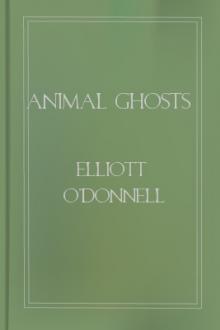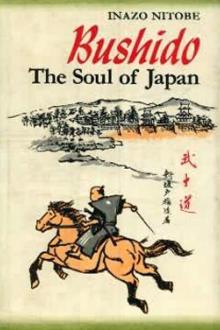Genre Philosophy. Page - 14

led to further experiments at a distance between Miss Telbin and myself.
AT 7 P.M.
I drew the following diagram
[Illustration]
AT 7 P.M.
Miss TELBIN'S drawings
[Illustration]
AT 7:10 P.M.
I fixed my attention on a flower
[Illustration]
AT 7:10 P.M.
Miss TELBIN obtained several incorrect scrawls, but amongst them one under which she had written the words
[Illustration]
"First impression"
AT 7:20 P.M.
I looked at a pair of opera glasses, at which I gazed first lengthwise
[Illustration]
then sideways
[Illustration]
AT 7:20 P.M.
Miss TELBIN'S drawings were--
First impression [Illustration]
A series of crescents [Illustration]
And this drawing [Illustration]
Also four drawings
[Illustration]
It was arranged that we should sit on certain days in the week, and that at a fixed hour I should act as agent and transmit to her my thoughts, s

there was none of that lurid glow attached to it, which I subsequently learned is almost inseparable from spirit phenomena seen under similar conditions.
"For some seconds, I was too overcome with terror to move, but my faculties at length reasserting themselves, I turned round and flew to the other wing of the house with the utmost precipitation.
"One would have thought that after these experiences nothing would have induced me to have run the risk of another such encounter, yet only a few days after the incident of the head, I was again impelled by a fascination I could not withstand to visit the same quarters. In sickly anticipation of what my eyes would alight on, I stole to the foot of the staircase and peeped cautiously up. To my infinite joy there was nothing there but a bright patch of sunshine, that, in the most unusual fashion, had forced its way through from one of the slits of windows near at hand.
"After gazing at it long enough to assure myself it was only sunshine, I quitt

fortunately, anylacking quality can be evolved and if one does not possess these threenecessities his first work is to create them. These three things arean ardent desire, an iron will and an alert intelligence. Why arethese three qualifications essential to success and what purpose dothey serve?
Desire is nature's motor power--the propulsive force that pusheseverything forward in its evolution. It is desire that stimulates toaction. Desire drives the animal into the activities that evolve itsphysical body and sharpen its intelligence. If it had no desire itwould lie inert and perish. But the desire for food, for drink, forassociation with its kind, impel it to action, and the result is theevolution of strength, skill and intelligence in proportion to theintensity of its desires. To gratify these desires it will acceptbattle no matter how great may be the odds against it and willunhesitatingly risk life itself in the combat. Desire not only inducesthe activity that develops physical strength

entity follows your awareness, and since you are ultimately everything, it can and will identify with whatever is in your awareness. This is the danger of a teaching that doesn't point to or convey the existence of true nature. If something is not even talked about or considered, it is much less likely that awareness will notice it, and also much less likely that identity will ultimately shift into it. This is why it is important to teach and explore the nature of all of the qualities of presence such as joy, peace, and love, so that awareness begins to touch them and eventually identity shifts to the underlying truth of Being.
A subtle distinction needs to be made between your true identity and the sense of self you have in any moment. Your true identity has and always will be the infinite spaciousness of Being, including all forms, both physical and subtle, and all of the formless emptiness of pure space. But your sense of self is a flexible means for this limitless Being to experience itself from ma

o the standpoint where he is able to realize that such a law exists. His evolution in the future must be by conscious participation in the great work, and this can only be effected by his own individual intelligence and effort. It is a process of intelligent growth. No one else can grow for us: we must each grow for ourselves; and this intelligent growth consists in our increasing recognition of the universal law, which has brought us as far as we have yet got, and of our own individual relation to that law, based upon the fact that we ourselves are the most advanced product of it. It is a great maxim that Nature obeys us precisely in proportion as we first obey Nature. Let the electrician try to go counter to the principle that electricity must always pass from a higher to a lower potential and he will effect nothing; but let him submit in all things to this one fundamental law, and he can make whatever particular applications of electrical power he will.
These considerations show us that what differe

to laws of the faculty of desire. The faculty of DESIRE is the being's faculty of becoming by means of its ideas the cause of the actual existence of the objects of these ideas. PLEASURE is the idea of the agreement of the object, or the action with the subjective conditions of life, i.e., with the faculty of causality of an idea in respect of the actuality of its object (or with the determination of the forces of the subject to action which produces it). I have no further need for the purposes of this critique of notions borrowed from psychology; the critique itself supplies the rest. It is easily seen that the question whether the faculty of desire is always based on pleasure, or whether under certain conditions pleasure only follows the determination of desire, is by this definition left undecided, for it is composed only of terms belonging to the pure understanding, i.e., of categories which contain nothing empirical. Such precaution is very desirable in all philosophy and yet is often neglected; namely,

closely resemble that of a refined product of a coarse idea, and the only method of deciding between degeneration and evolution would be the examination, if possible, of intermediate and remote ancestors. The evidence brought forward by believers in the Wisdom is of this kind. They allege: that the Founders of religions, judged by the records of their teachings, were far above the level of average humanity; that the Scriptures of religions contain moral precepts, sublime ideals, poetical aspirations, profound philosophical statements, which are not even approached in beauty and elevation by later writings in the same religions--that is, that the old is higher than the new, instead of the new being higher than the old; that no case can be shown of the refining and improving process alleged to be the source of current religions, whereas many cases of degeneracy from pure teachings can be adduced; that even among savages, if their religions be carefully studied, many traces of lofty ideas can be found, ideas whi

is largely built, and it will not take us long to discover that Bushido does not stand on a lesser pedestal. If fighting in itself, be it offensive or defensive, is, as Quakers rightly testify, brutal and wrong, we can still say with Lessing, "We know from what failings our virtue springs."[3] "Sneaks" and "cowards" are epithets of the worst opprobrium to healthy, simple natures. Childhood begins life with these notions, and knighthood also; but, as life grows larger and its relations many-sided, the early faith seeks sanction from higher authority and more rational sources for its own justification, satisfaction and development. If military interests had operated alone, without higher moral support, how far short of chivalry would the ideal of knighthood have fallen! In Europe, Christianity, interpreted with concessions convenient to chivalry, infused it nevertheless with spiritual data. "Religion, war and glory were the three souls of a perfect Christian knight," says Lamartine. In Japan there were

